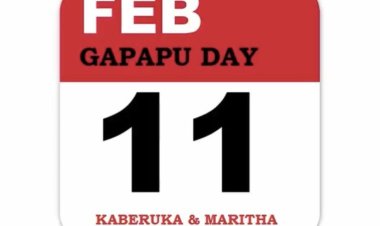Talent vs. Business: what does it take to succeed in music?
Any income generated through music doesn’t come simple. It is not only about payment negotiations or performance fees, but also other deals like one-off deals and freelancing. Whatever your career is in music, the industry pays differently and it is all due to how you approach it.
It is obvious that talent makes musicians good, the passion to music makes them better, commitment, vision, and consistency, as well as determination make them even much better while the message delivered through their music makes them great but above all that, there must be a great eye to the business side.
Any income generated through music doesn’t come simple. It is not only about payment negotiations or performance fees, but also other deals like one-off deals and freelancing. Whatever your career is in music, the industry pays differently and it is all due to how you approach it.
From that, it is pretty considerable for an artist to choose their niche wisely, since the path you take in the music business impacts directly how you earn. As an artist, it is worth noting that your career takes the direction of the deals you make. Therefore, it is advisable for you to consider the following if you want to be a marketable brand
- Hire a manager
As an artist, you need to make sure you have a skilled person to look after all your career related activities, deals, events and other business related endorsements. This one can be paid on percentages from the amount of money you make together, all depending on the agreed terms. Managers can also get fixed salaries, depending on the sufficiency of the income you, an artist, generate so as to keep them from working with multiple clients and only concentrate on you
- Have your own promoters
These are in charge of promoting your shows, your releases and other career related activities you take part in. Promoters are paid on ticket sales and shows promotion. In what is known as “Door Split Deals”, promoters get percentages of earnings from the shows, leaving all the remaining profits to an artist. There can also be an agreement between an artist and the promoter for a fixed amount of money per show, with the artists retaining all the profits after deducting all the costs
- Always look for better record deals
Basically, all record deals are about helping you sell your music. In most cases, recording companies have all the necessary business partners, all benefiting from selling their artists’ records. This leaves artists with small earning percentages from their work, and sometimes with little payments. Therefore, you and your lawyers have to negotiate the best possible record deals, allowing you to own your music and have control over it. This gives you the rights to benefit from your music even when your record deal gets over. For example, you, as an artist, in any deal, should avoid any idea that the record company owns your “master recordings” or have total rights to distribution and reproduction of your music
- Sign your own artists
One of the biggest investments in music is signing other artists. Building upon your own ability and your reputation as an artist, you can sign your own artists to deals and get percentages from the records they sell. This comes out beneficial and cement your name in the industry. Signing artists means that you will have a percentage from all the streaming royalties they get, live plays, merchandises and endorsements, as well as music licensing payments.
- Work closely with music PRs (where possible)
Music PR companies excel in conducting campaigns and are paid on that foundation. Whether in form of radio working, press conferences and TV promotions, music PRs engage in negotiating smooth subscriptions for functioning releases or tours, with the negotiated fees covering the cost of promoting your music, shows and tours in a certain period. In some circumstances, music PRs are provided with bonuses on the success of a project, like sold out tours, or a number of records sold due to the campaigns they engaged in but, all those are things you have to agree on before you get to the business.
- Work closely with music journalists and media personalities
As an artist, consider working very closely with all the people with direct association to music, whether based on your actual releases or on a contractual basis. Whether working for publications, radio or TV stations, or as freelancers, music journalists provides you with a great reach to a bigger audience through both the institutions they work for and their own public attraction.
- Have your own producers and engineers
Having your own record producers to work with will help you reduce the amount of money you pay for producing records. You can work with producers on a contractual basis, sharing a certain percentage of the income generated from the records they produced for you, rather than paying freelance record producers per projects, which is costly and sometimes with less guarantee to success.

























